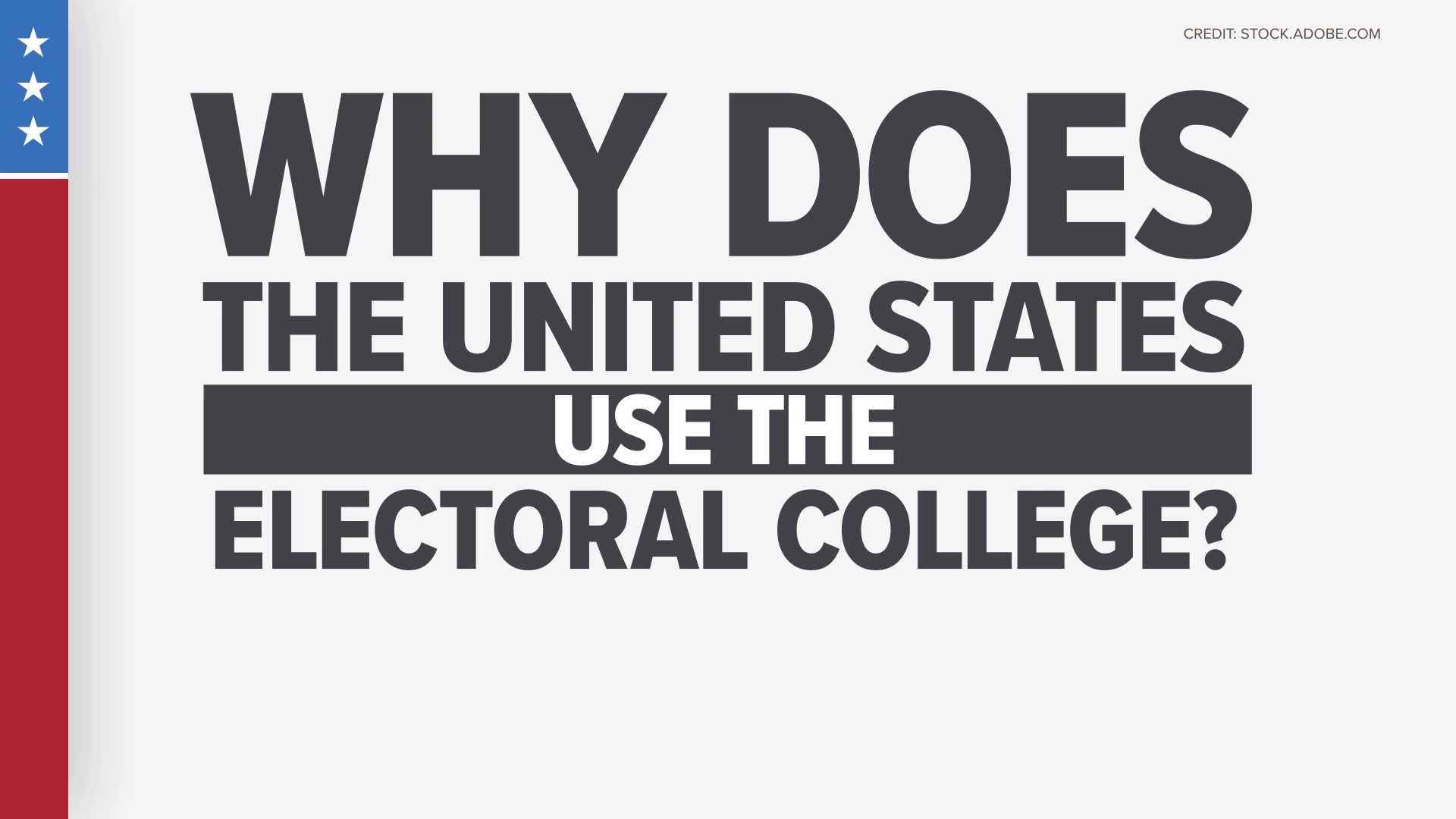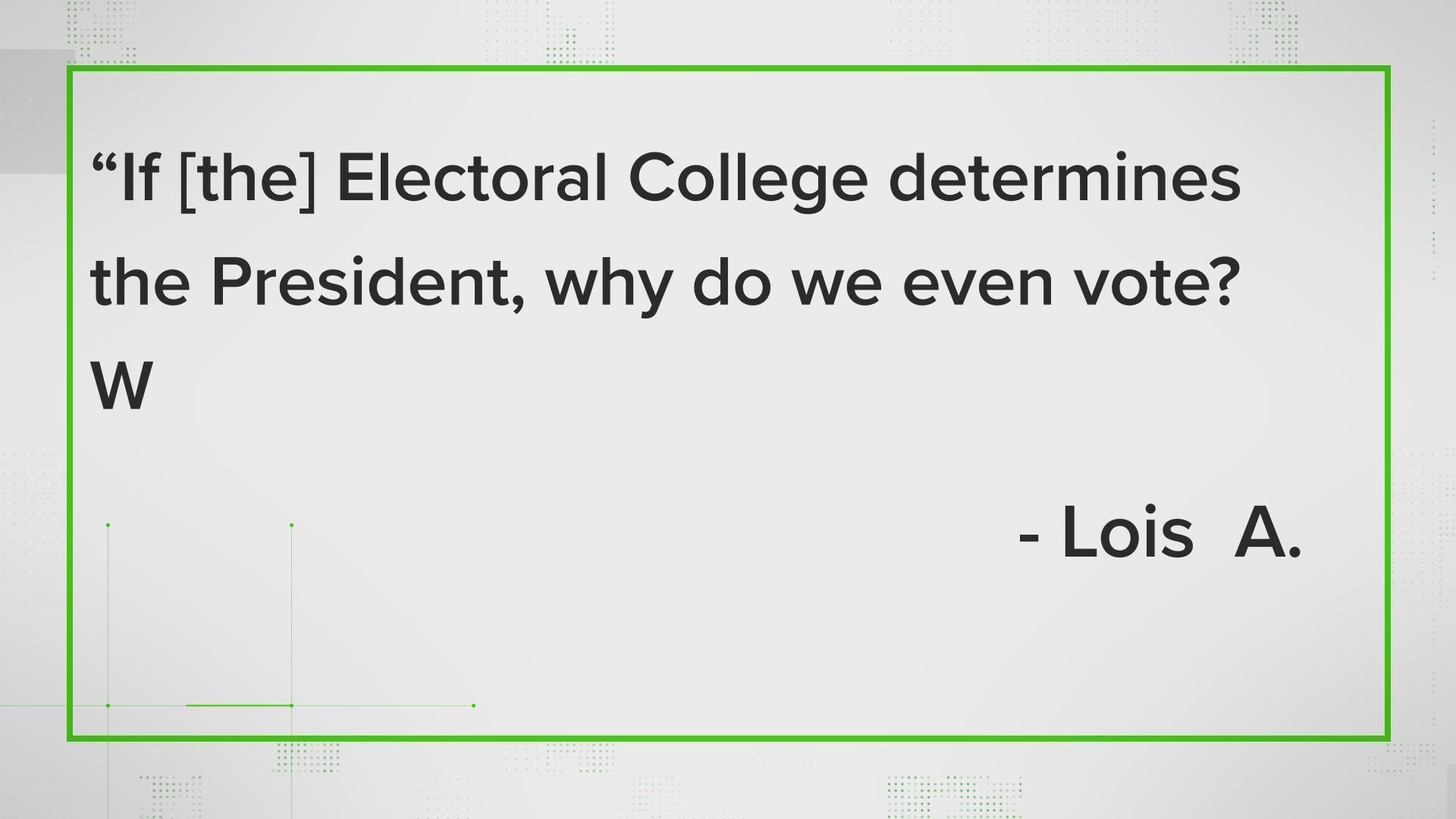WASHINGTON — Even before the final vote count is tallied, it's clear that turnout in the 2020 election has been momentous. Hundreds-of-millions of people have cast their votes in the presidential race between President Donald Trump and former Vice President Joe Biden.
But technically, none of these votes have been cast for the presidential candidates themselves.
What? Yep, that's right. In the Electoral College system, our votes actually go to the presidential electors who will eventually decide on the president.
Historically these electors will follow the will of the people, although this isn't a Constitutional guarantee. The Verify team tackled some of the biggest questions about presidential electors -- and if a faithless one could potentially change the outcome of this year's election.
SOURCES:
- Constitution - Article II, Section 1
- National Archives, Summary of Electoral College
- National Association of Secretaries of State, Summary of State Laws on Presidential Electors
- Dr. Craig Albert, Professor of Political Science at August University
What's the role of a presidential elector?
In a general election, voters are not actually voting for president, but for a slate of electors, selected by the parties, with candidates for electors nominated by state political parties in the months prior to Election Day.
The role of the 'presidential electors' is outlined in Article II, Section 1 of the Constitution.
In it, the Consitution mandates that each state appoints a number of electors "equal to the whole Number of Senators and Representatives to which the State may be entitled in the Congress."
This is why a massive state like California has 55 electoral votes, while a smaller state like Delaware has only three electoral votes. They each receive two votes for their respective number of senators. Meanwhile, California receives an additional 53 electoral votes, representing their many members of Congress, while Delaware only receives one, representing their one member of Congress.
Washington, D.C. is not a state, but still receives three electoral votes, as mandated by the 23rd Amendment.
In total, there are 538 electoral votes, and a presidential candidate needs to win 270 of them to become president.
After a general election, these presidential electors are required to meet on the first Monday after the second Wednesday in December to actually cast their ballots. This year, that date is December 14th.
The state electoral votes are then counted in a joint session of Congress on January 6.
How are electors selected?
The political parties in each state have their own set of rules for selecting their slate of electors. They are either selected at state party conventions or by a vote of the party's central committee, according to a summary on the National Archives website.
"Political parties often choose individuals for the slate to recognize their service and dedication to that political party," the summary read. "They may be State elected officials, state party leaders, or people in the State who have a personal or political affiliation with the party's presidential candidate."
Dr. Craig Albert, a professor of political science at Augusta University, said that voters are technically voting for these electors, and not the presidential candidates.
“If you voted for President Trump, you’re not really voting for Trump," he said. "You are voting for a slate of electors who promise theoretically to cast their Electoral Vote for President Trump.”
Do presidential electors need to follow the popular vote of their state? What's a faithless elector?
A faithless elector is a member of that Electoral College who does not vote for the presidential candidate they pledged to have voted for -- they either do not vote at all, or vote for another candidate altogether.
According to the National Archives, there is no Constitutional provision or federal law that "requires electors to vote according to the results of the popular vote in their States."
However, many states have required their presidential electors to follow the popular vote.
The National Association of Secretaries of State reported that as of October of this year, 31 states and Washington, D.C., had laws "requiring that presidential electors cast their vote for the presidential candidate for the party they were selected to represent."
RELATED: VERIFY: This Supreme Court case ruling means states can determine where their electoral votes go
To look through the individual state laws, visit here.
The Supreme Court decided just this year that states are allowed to enact requirements on how electors vote.
According to the summary on the National Archives website, it remains incredibly rare for a presidential elector to break from their pledge.
"Throughout our history as a nation," the summary read. "More than 99 percent of electors have voted as pledged."
So while it is incredibly rare, it is still possible for the election to come down to a single elector who could switch party allegiance.


